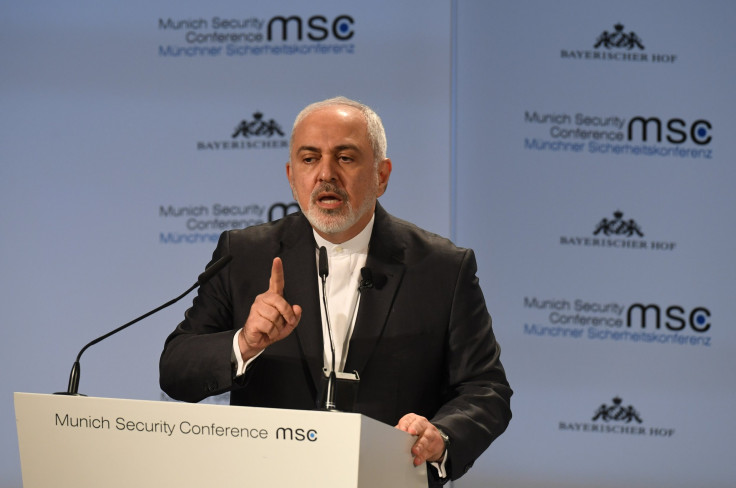‘Risk Of War’ Mounting In Iran, Blames US And Israel

Iran has alleged that Israel is provoking a war in the oil-rich Middle East abetted by hostile policies of the United States while keeping “international laws on the shelf.”
Speaking at the Munich Security Conference on Sunday, Iran's Foreign Minister Mohammad Javad Zarif accused Israel of forcing a war in the region. He said the stance of the United States is only escalating the chances of a clash.
“The risk of war is great. The risk will be even greater if you continue to turn a blind eye to severe violations of international law,” Zarif said.
The Iran minister was apparently referring to Israeli air raids against Iranian targets in Syria in recent weeks.
Israel launched many air attacks in Syria in places purported to be the base of the Iranian Revolutionary Guard. Israel has a history of air raids against targets controlled by Iran and Hezbollah.
“Israeli behavior is putting international law on the shelf, US behavior is putting international law on the shelf,” added Zarif.
The US exhibiting ‘pathological fixation’ with Iran
In a scathing attack on the U.S. Zarif charged America of displaying a “pathological obsession” with Iran. He accused Washington of being the “biggest source of destabilization” in the Middle East.
“In the name of containing Iran, the U.S. claims, and some parrot, that it is Iran that is interfering in the region, but has it been asked whose region?” Zarif asked.
“Look at the map, the U.S. military has traveled 10,000 kilometers to dot all our borders with its bases,” Zarif noted.
Meanwhile, Israeli Prime Minister Benjamin Netanyahu described Iran as the “main destabilizing factor ” in the Middle East and accused it of belligerence.
Netanyahu told a broadcast on Israeli media that “we must deny Iran nuclear weaponry and block its military entrenchment in Syria.”
The PM reiterated that Israel would continue to take steps to ensure the country’s security.
The Iranian foreign minister also criticized Vice President Mike Pence’s rebuke of European allies for trying to evade the U.S sanctions by seeking to do trade with Iran through other channels.
Zarif was referring to Mike Pence’s message to European powers Germany, France, and Britain not to pamper Iran with the alternate trade channel INSTEX to bypass the U.S sanctions.
The European powers recently floated INSTEX or Instrument In Support of Trade Exchanges for conducting non-dollar trade with Iran to skirt U.S. sanctions.
The Trump administration had announced the U. S withdrawal from the Iran nuclear deal in May 2018. The deal was signed during the Obama regime in 2015.
After the exit of the U.S, Russia, China, and the European Union were struggling to salvage the deal.
Zarif termed INSTEX as inadequate and urged France, Britain, and Germany to do more to show their commitment to the 2015 nuclear deal with Iran.
Iran’s recent cruise missile test
However, the Iranian foreign minister did not mention its own provocation in the region with the latest cruise missile test.
Iran tested the Hoveizeh missile of 800 miles (1,300km) range on Feb 2, on the occasion of the 40th anniversary of the Islamic revolution.
Defense Minister Amir Hatami described the missile as the “long arm of the Islamic Republic of Iran to defend itself”. The missile can get ready for launch in the shortest possible time and will fly at a very low altitude.
Though Iran insists that it has capped the range of all missiles to 1,200 miles, the fact is that Israel and all Western bases are under the striking range of its missiles.
© Copyright IBTimes 2025. All rights reserved.





















